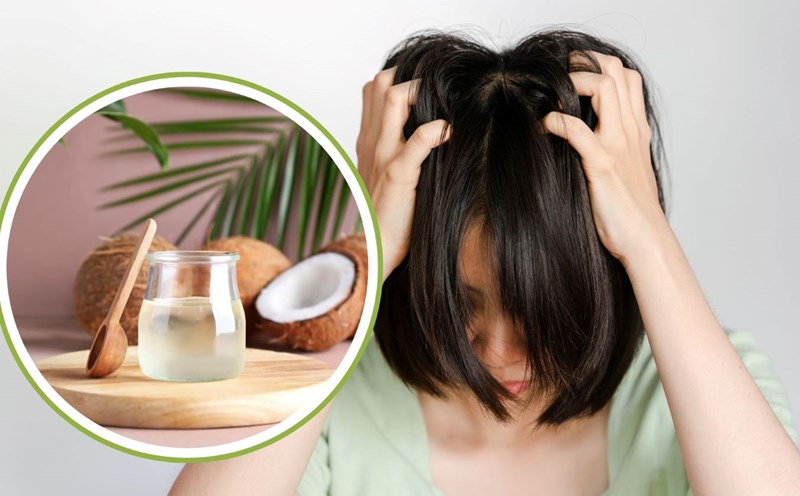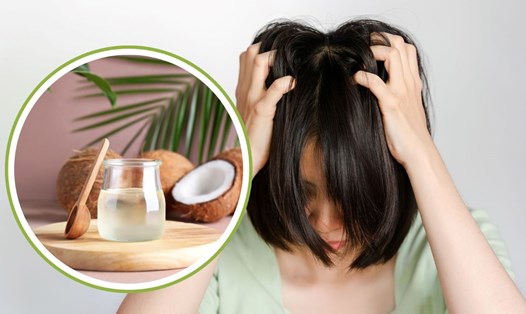Dr Shrilekha Shringarpure, hair and beauty expert, co-founder and head of The Preserve Clinic (India) - said that most cases of hair loss are due to compromised scalp health. Therefore, scalp exfoliation is necessary as it plays an important role in removing accumulated dirt, sebum and excess keratin, which accumulates on the scalp.
Dr. Shrilekha Shringarpure lists some typical scalp types, including:
Oily scalp
An oily scalp occurs when the sebaceous glands produce too much sebum. This causes hair to look greasy and sticky even after shampooing. People with oily scalps often struggle with dandruff, as the excess oil can lead to an overgrowth of yeast.
To control an oily scalp, use a mild, cleansing shampoo that balances oil production without drying out your hair. Look for exfoliating ingredients that contain salicylic acid, which is effective at removing excess sebum.
Dry scalp
Dry scalp lacks moisture, leading to flaking, itching and irritation. This is due to factors such as cold weather, harsh shampoos or not drinking enough water.
People with dry scalps often experience small white flakes that resemble dandruff, but are caused by dryness rather than excess oil on the skin.
Choose an oil-based exfoliant that combines ingredients like lactic or glycolic acid with oils like rosemary or avocado oil. Using a moisturizing shampoo and conditioner, along with a scalp treatment, can help restore moisture balance.
Sensitive scalp
Sensitive scalps are prone to irritation and discomfort, often reacting to certain hair care products, environmental factors or even stress.
Symptoms may include redness, itching, and burning. People with sensitive scalps need to be careful with the products they use, choosing hypoallergenic or sulfate-free products that are gentle and soothing.
Normal scalp
Normal scalps are usually better balanced, producing just the right amount of oil on the skin. Their scalps are also not too oily or too dry and are usually not irritated or flaky.
People with normal scalps can use a wider variety of hair care products and are less likely to experience scalp-related problems.











